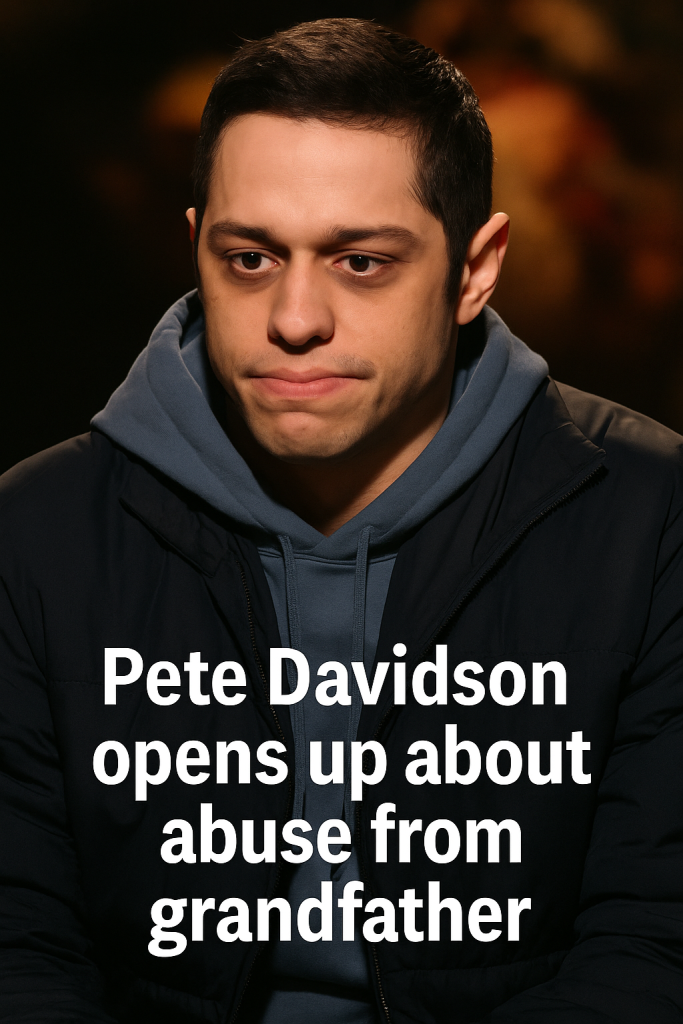In a startling and deeply personal revelation, comedian and actor Pete Davidson has opened up about the abuse he endured from his grandfather, shedding light on a painful chapter of his life that few knew about. His candid comments, including a chilling admission that he is “thrilled” to see his grandfather “die slow,” have sent shockwaves through social media and sparked conversations about trauma, forgiveness, and resilience.
Davidson’s disclosures came during a recent interview, where he spoke openly for the first time about the difficult relationship with his grandfather, who was a source of significant emotional and physical abuse during his childhood. The comedian explained that the scars from this trauma have profoundly affected him, shaping both his personal life and his comedy.
What Led to Such Strong Words?
When asked about his feelings towards his grandfather, Davidson did not mince words. He expressed a complex mix of anger, pain, and a desire for justice that goes beyond simple forgiveness. The phrase “die slow” was used to encapsulate his wish for his grandfather to understand the depth of pain he caused and perhaps face a slow reckoning for his actions.
Davidson emphasized that his feelings are rooted in the years of verbal and physical abuse he suffered, which often left him feeling isolated and powerless. He painted a picture of a toxic familial environment that contributed to long-term psychological damage, triggering issues with mental health that Davidson has publicly battled.
From Trauma to Comedy
Despite his troubled upbringing, Pete Davidson has used his experiences as fuel for his work. Known for his brutally honest and self-deprecating humor, Davidson frequently draws on his past to connect with audiences and discuss topics such as mental illness, addiction, and family strife. His latest revelations add another layer of understanding to his comedic style and the raw emotion behind many of his jokes.
While some may find his words harsh, others view them as a bold reminder of how unresolved abuse can shape a person’s life and the complexities involved in coming to terms with it. Davidson’s openness about his struggles is part of a broader movement among public figures to destigmatize mental health issues and share personal stories that might help others feel less alone.
Public Reaction and Conversations
The reaction from fans and fellow entertainers has been empathetic and supportive. Many applaud Davidson for his bravery in confronting painful memories so publicly, recognizing the courage it takes to reveal such vulnerability on a global stage. Conversations have also sparked around the importance of addressing family abuse and the long-term effects it can have, an often-silenced topic.
Davidson’s statement is a reminder that while healing is possible, the journey is often complex and fraught with difficult emotions. His hope, more than anything, seems to be that by speaking out, he can help others struggling with their own familial pain find a voice and seek the help they need.
As Pete Davidson continues to navigate his path forward, his openness about his past serves as a compelling example of how public figures can use their platform to foster greater understanding and compassion around difficult personal issues.



